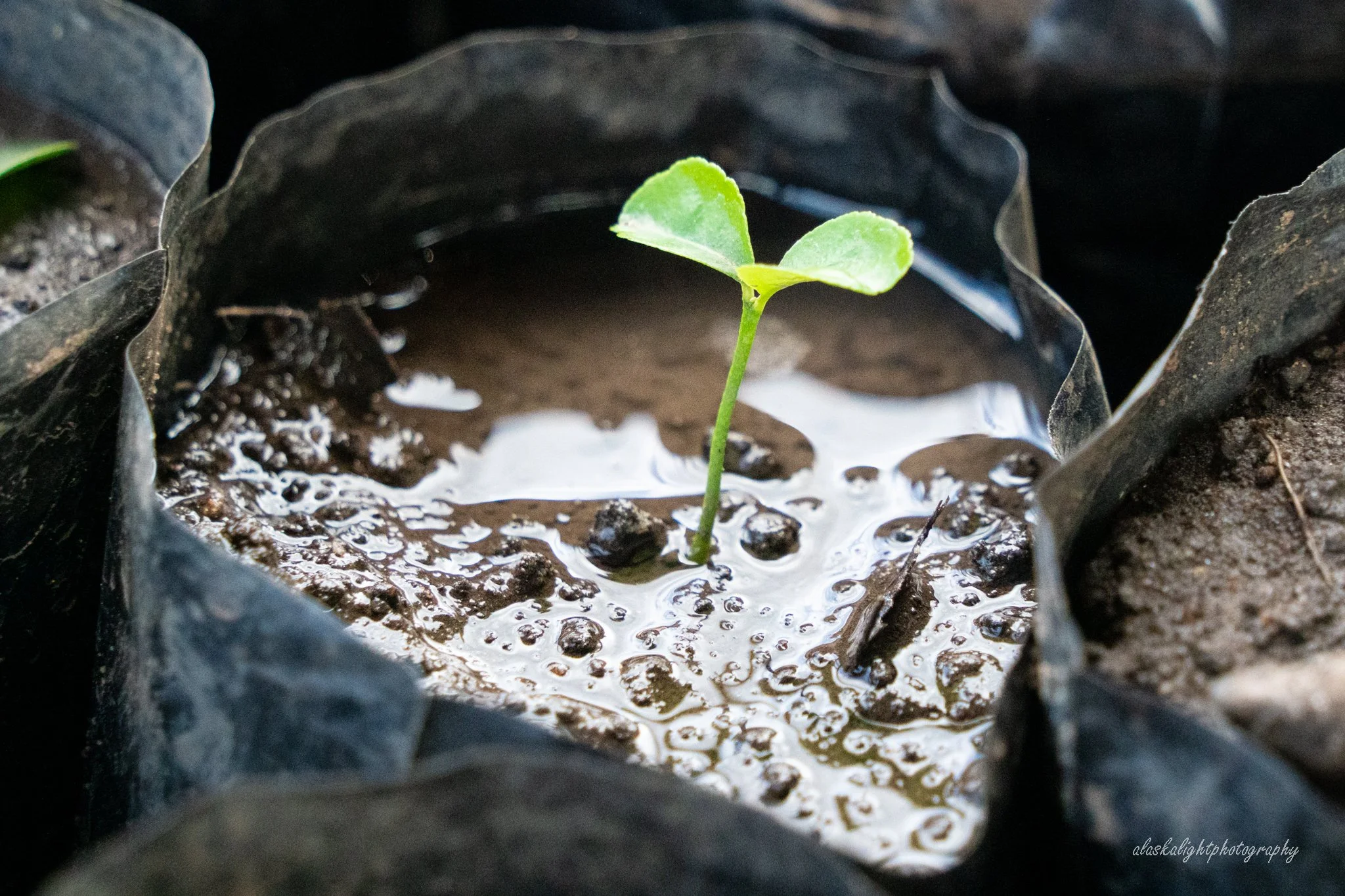Seeds of Change
After a beautiful motorbike ride the likes of which you only tell your mother after it’s over, we arrive in Upper Matete at Chizuwula Club, one of the eighteen community sheds Maston Mkandawire has established in this area alone over the previous two years. Across the wider area, there are a total of 90. Just like the trees and vegetables he is now helping people to grow, his idea for this project began as a tiny seed when he noticed a need in his community. Ripple Africa had begun providing fruit tree seeds to local schools. But after they were planted, local farmers were digging up the small trees and taking them to plant at their homes. Maston wanted to find a solution; one that would create a ripple effect of positive change throughout his community. Success feels like an understatement as he tells me more about his vision and shares his story.
Originally, Maston studied accounting. But it seems he was meant for a different line of work. After completing his studies, he found himself working at a shop that Ripple Africa’s local managers frequented for supplies. He made friends with them, a thing it is clear he does effortlessly with his easy-going, warm and open nature. After returning to school to study General Agriculture and learning more about what the organization was doing, he boldly approached Ripple’s founder Geoff Furber with a proposal.
With Maston’s vision and funding support from Ripple, what was a tiny seed a few years ago is today a forest full of fruit-bearing trees and vegetable gardens that provide food, a source of income and an immense sense of accomplishment and pride among the members of each club. I’m in awe of Maston’s genuine love for the project and the incredible bounty of new life he has helped to propagate here.
At inception, the clubs have ten members, chosen at random by the chiefs in the area. They are supported with supplies, seeds, workshops and are guided through each stage of the process. A shed is built, a tree nursery is created and a place to grow vegetables is chosen. By August, this shed will be full of seedlings ready to be planted in December. Between all the clubs, 1500 seedlings will be planted this year. The trees take longer to bear fruit, but within three months, the clubs have vegetables, which provide food and a source of income. After two years, the clubs are thriving on their own and can add members at the discretion of their chiefs. Maston is then available to add new clubs, expanding the reach of the project.
Today I’m privileged to be welcomed at a workshop he is leading for this club. I sit talking with Maston near the small shed full of tiny saplings: avocados, oranges, lemons and guavas. The members arrive one by one – unhurried and on Malawian time, as they affectionately call it - and greet me warmly and with curiosity. “You are welcome. Be free.” they tell me and the sincerity of their words is palpable.
We begin. To start, Maston instructs the group on how to turn Telphrozia (Mteteza in Chitonga) and chilis (Sabola in Chitonga) - both of which grow locally in abundance - into pesticide. It’s an environmentally friendly, effective and much cheaper alternative to chemical pesticides. He patiently walks us through each step of the process. We grind them, add them to water and leave them to steep as we move on to transplanting.
Maston explains that in each tube we want a single sapling. Many of the tubes have two, three and four in each, so our work will be to separate them. He shows us how to empty each tube, gently separate the roots, and replant them.
The work is methodical and rewarding. Each of the tiny trees feels like a small child and the members take the work seriously, treating each plant with the utmost care. They talk and laugh in Chitonga as we work, and though I understand none of their actual words, their smiles, laughter, willingness to include me and teamwork say more than words ever can.
When we finish, the pesticide is ready, and Maston shows us how to strain the seeds and leaves from the mixture so as not to clog the watering cans. We share a moment of laughter and a group coughing fit as the chili mixture is poured on the young plants. If the pests are anything like us, they won’t stand a chance against its potency.
From the tree nursery, we move to the tiered vegetable garden which the club worked together to dig. Maston walks us through the process of planting a row of cabbage. It’s clear they respect him. He’s an engaging teacher, a natural leader, and the depth of his knowledge is invaluable. They diligently follow his instructions, we leave the newly planted cabbage seeds protected under a pile of leaves, and Maston leaves instructions about how to care for them in the coming weeks.
We finish at the compost pit they have dug, which they will fill with manure and ash that will become natural fertilizer for them to use in the future.
It’s a jovial and productive afternoon that leaves me inspired about sustainability, the beauty of sharing knowledge and the way that change can indeed ripple through a community. It’s a lovely thing to witness Ripple Africa living its mission: a hand up rather than a hand out. As a global community, we can learn to offer each other our hands in the spirit of creating a sustainable future, building stronger communities and empowering each other with shared knowledge.




















